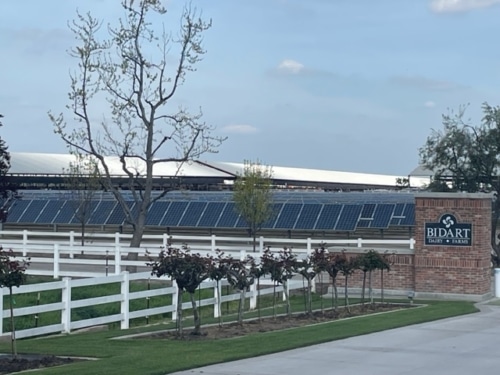BAKERSFIELD AGRICULTURAL SOLAR
On a recent trip to Bakersfield to visit my brother, who is a dentist practicing in town, I was able to view a number of Bakersfield agricultural solar projects installed at local farms. Demand for energy in the agriculture sector has increased significantly to meet the needs of a growing population and an increasing demand for food. This demand along with the need for powering agricultural equipment like pumps, generators, motors, tillers, etc. calls for an alternative energy source that can decrease the dependency on fossil fuels and energy procured from PG&E.
While the adoption of solar energy is underway, there are many promising advancements in recent times that are levelling up solar energy as a powerful and promising source of power for many agricultural applications.
In this article, we will discuss the usage of solar energy in the agricultural industry, its feasibility, applications, adoption, and how BCSC LLC can help your farm!
Solar power for agriculture can help lower the large PG&E electric bills farmers incur from watering their crops and other applications.
The use of solar energy can be a revolutionary advancement for the agricultural sector, by adding value in many ways like saving precious water resources, reducing dependency on the grid, and saving on power costs.

Agricultural applications of solar energy:
The cost of implementing and managing solar energy setup has decreased due to advancements in the industry, enabling more installations across different applications in the agricultural sector. Some of them include: –
Solar Energy-Powered Water Pumps: In many places where electric supply might be limited or not available, solar water pumps are lifesavers. Solar pumps use solar energy and pump water from reservoirs, and canals to the farms which would save hours of time for farmers. Here solar panels are employed to harness the solar energy and using inverters, DC power is supplied to the power grid or stored in batteries. This power will be used efficiently to run the pumps to supply water.
Water and Space Heating: Livestock and dairy operations have specific space and water heating requirements around the year at different seasons. Since, in most cases, cattle farming is done in closed structures, the temperature and air quality are vital for operations. Solar power is used to manage this around the year. By employing a solar-powered heating system, Bakersfield farmers can easily save costs incurred on PG&E electricity bills. These systems use solar panels that effectively power the temperature control systems as required.
Crop and Grain Drying: Using sunlight to dry crops and grains is one of the oldest applications of solar energy used by farmers. While this is a completely free, viable method that can easily be employed, it has a risk of exposing the crops to the wind, rodents, impurities, etc. contaminating them. With advancements in technology today, there are solar dryers that can help in harnessing maximum solar energy and concentrating it in a closed container where trays are used to dry the produce. These systems will also help in accelerating the process and reducing the time required.
Green House Heating: Greenhouse heating is essential for the proper growth of certain crops and plants. Commercial greenhouses use sunlight for lighting but not for heating. Mostly, they depend on oil and gases for maintaining the required temperature. Solar green housing heating systems are used to feature both the lighting and heating that is required. A solar greenhouse has a solar panel to collect the energy and batteries to store the energy. It also has insulation that will help in retaining heat during cold days and nights.
Remote Supply of Electricity: Bakersfield Farms are located in PG&E territory, where the electricity supply is never assured, and farmers may constantly face issues related to power outages and shortages for running their equipment. Solar PV systems are employed in the farms to produce the required electricity that is stored in the batteries and used when required. This not only helps in reducing the power consumption from the grid but also saves money for farmers in the long run.
Solar-powered cooling systems: In many cases, farmers face huge losses due to the lack of availability of proper refrigeration and cooling systems in their farms. Even if they have a refrigeration system, it becomes very difficult to power them all day with constant PG&E power cuts and outages. Solar-powered cooling systems will help in tackling this problem. The refrigeration systems used will have a continuous supply of power from the batteries hooked to the solar panels where the power is supplied directly in the morning and the backup power stored is supplied during the night.
To recap, benefits of using solar power in the agriculture sector are:
Saving costs incurred in from PG&E
Continuous supply of uninterrupted power with solar and storage
Use of renewable energy sources and green branding
Availability of power systems locally, even in remote locations
Easy management of power usage
Conclusion:
Farmers are dependent on electricity to power their water pumps and other equipment. With the increasing cost in procuring electricity from PG&E, it’s a no-brainer for these hard working families to transition to solar and battery storage.
BCSC LLC can run a digital request for Bakersfield agricultural solar and storage proposals from thousands of qualified nationwide solar & storage providers for your farm. We can also provide financing, if necessary. Inquire today through the contact us button below!

